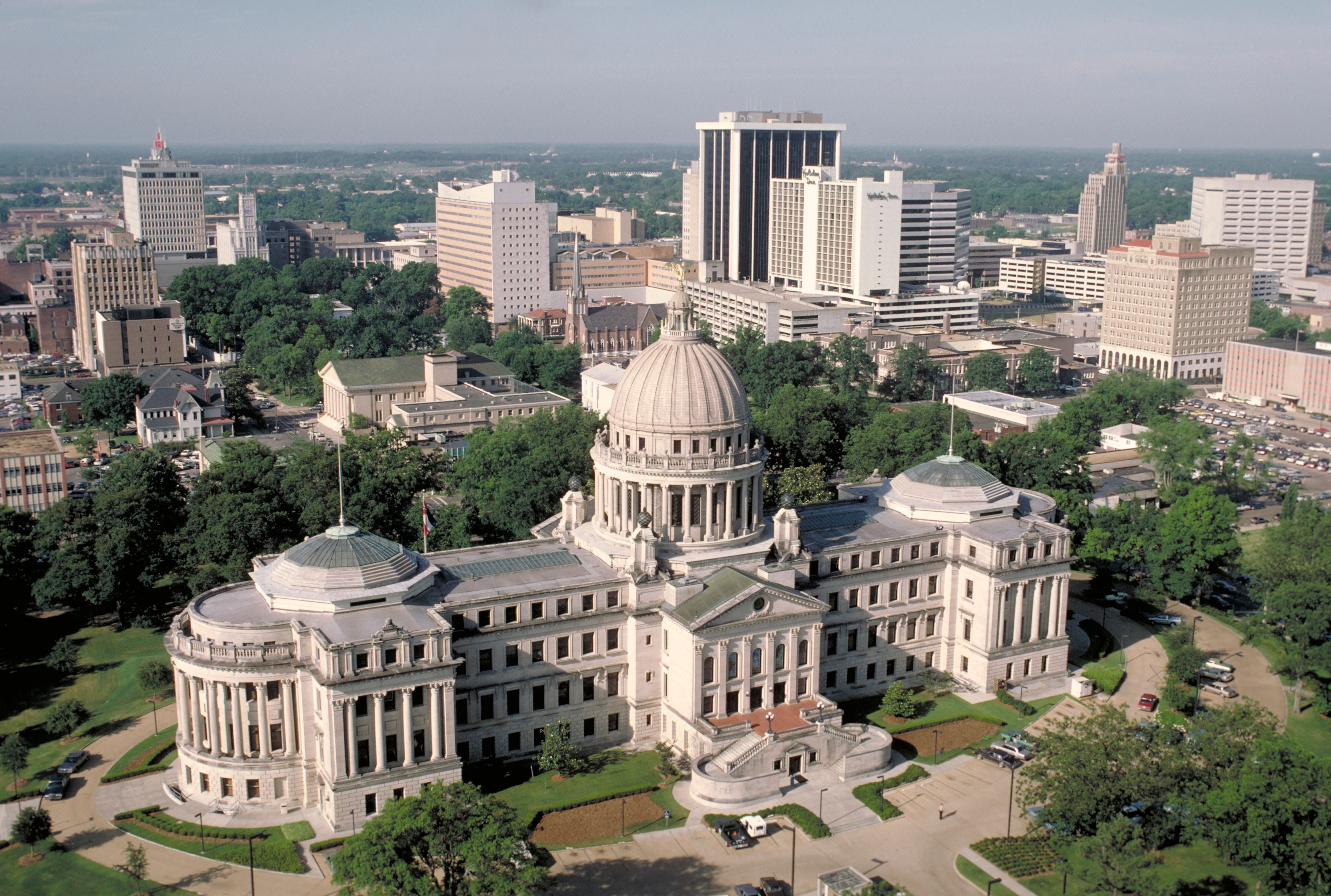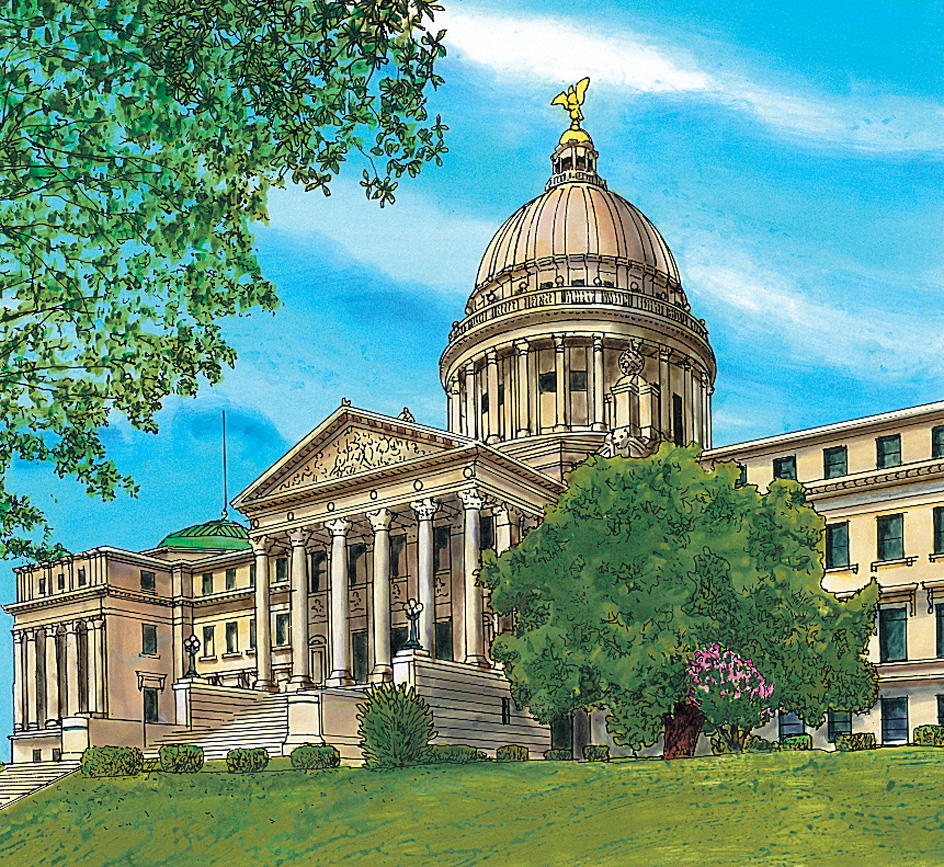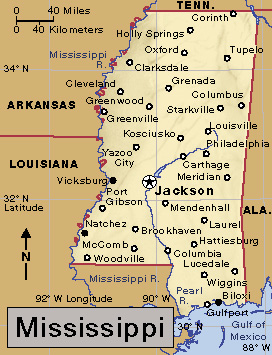Jackson, Mississippi (pop. 153,701; met. area pop. 619,968), is the capital and largest city of the state. It serves as a center of commerce, industry, and transportation and is known as the Crossroads of the South. Jackson lies on the west bank of the Pearl River in central Mississippi.

In 1821, the Mississippi Legislature established the capital in the center of the state at a site called LeFleur’s Bluff. The Legislature renamed the site Jackson to honor Major General Andrew Jackson, a hero of the War of 1812 (1812-1815). Jackson later became president of the United States.
Description.
Jackson, one of the two county seats of Hinds County, covers 114 square miles (295 square kilometers). Raymond is the other county seat.
The mayor of Jackson appoints a Board of Trustees to supervise the city’s public schools. Belhaven University, Jackson State University, Millsaps College, the Reformed Theological Seminary, Wesley Biblical Seminary, and the University of Mississippi Medical Center are in the city. Mississippi College lies just west of Jackson, and Tougaloo College is north of the city.
Tourist attractions in Jackson include the Old Capitol Museum, the Mississippi Agriculture and Forestry Museum, the Mississippi Museum of Art, the Mississippi Museum of Natural Science, the Mississippi Civil Rights Museum, and the Museum of Mississippi History. The Mississippi Sports Hall of Fame and Museum includes a collection of memorabilia about the legendary baseball pitcher Dizzy Dean. The state Legislature meets in the new Capitol. The Mississippi Symphony Orchestra, Opera Mississippi, and Ballet Mississippi perform in Thalia Mara Hall.

Economy.
Jackson’s central location in the South helps make it one of the most important commercial centers of that region. Some of Mississippi’s largest banks and law firms are located in the city. Bus companies and railroad passenger and freight lines serve the city, as does Jackson-Medgar Wiley Evers International Airport.
Jackson’s metropolitan area has hundreds of manufacturing companies. The city’s chief products include automotive and aircraft parts, electrical houseware equipment, and motors. Other major industries include food processing and the manufacture of clothing, furniture, and products made of clay, glass, or stone.
Government and history.
Jackson has a mayor-council form of government. The voters elect a mayor and seven council members to four-year terms.

Choctaw Indians lived in what is now the Jackson area before French settlers arrived during the early 1700’s. In 1792, Louis LeFleur, a French-Canadian fur trader, set up a trading post there. In 1821, the Mississippi Legislature chose this post as the site of the state capital. Jackson became the capital in 1822.
During the American Civil War (1861-1865), Union forces invaded Jackson four times. General William T. Sherman and his troops burned much of the city in 1863. The rapid development of railroads during the late 1800’s helped make Jackson a center of trade.
In 1930, a natural gas field was discovered near Jackson. This discovery attracted industry because the gas provided cheap fuel for factories.
In the 1960’s, city leaders began “An Action Program for Jackson’s Economic Development.” This program campaigned to attract industry. About 70 companies built factories in the area in the late 1960’s and early 1970’s. The factories provided jobs that drew more people. Jackson expanded its boundaries in 1971 and 1976. From 1970 to 1980, the population grew by about 32 percent. However, since 1980, Jackson’s population has steadily decreased. The Jackson Convention Complex opened in 2009.
